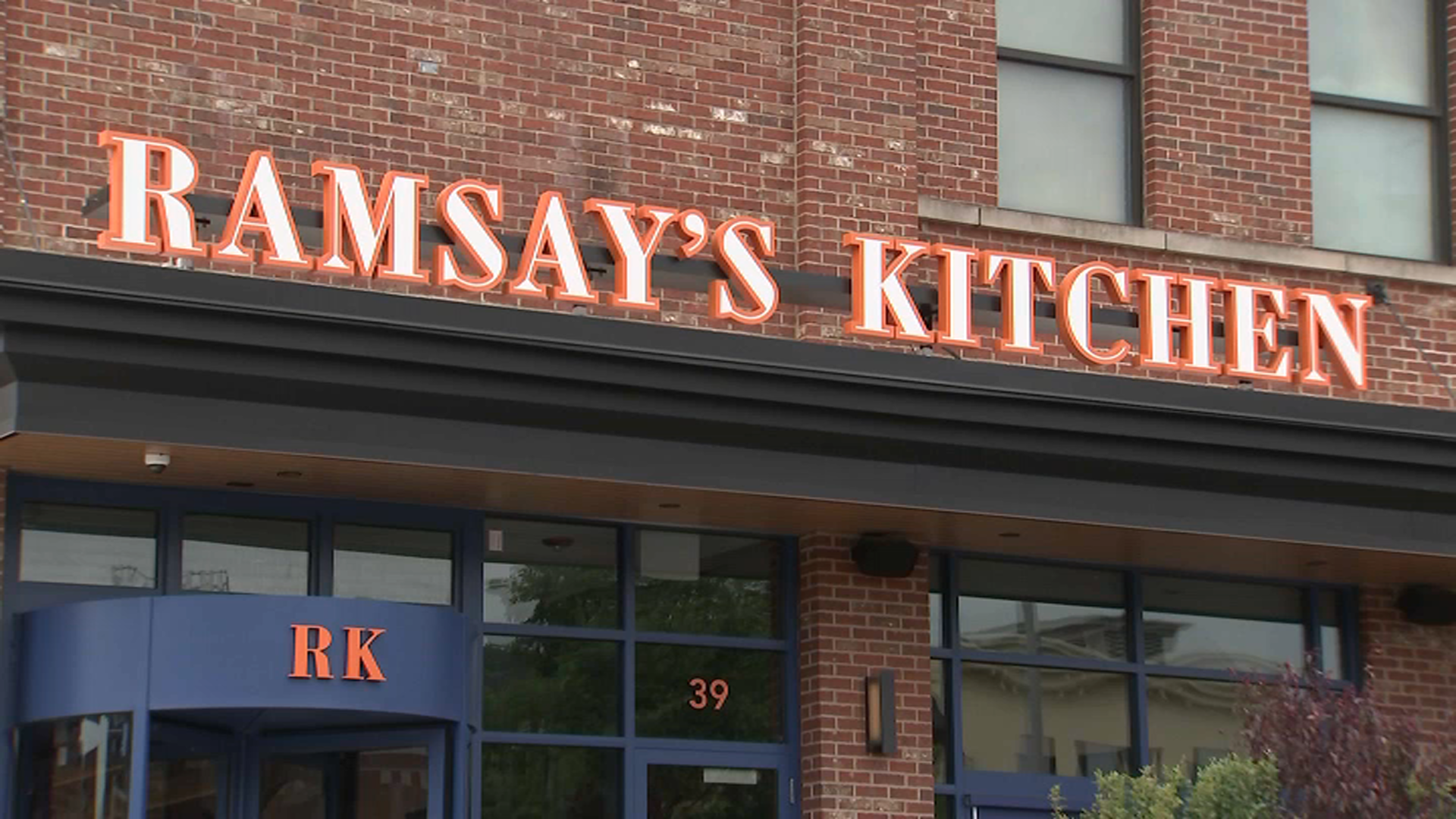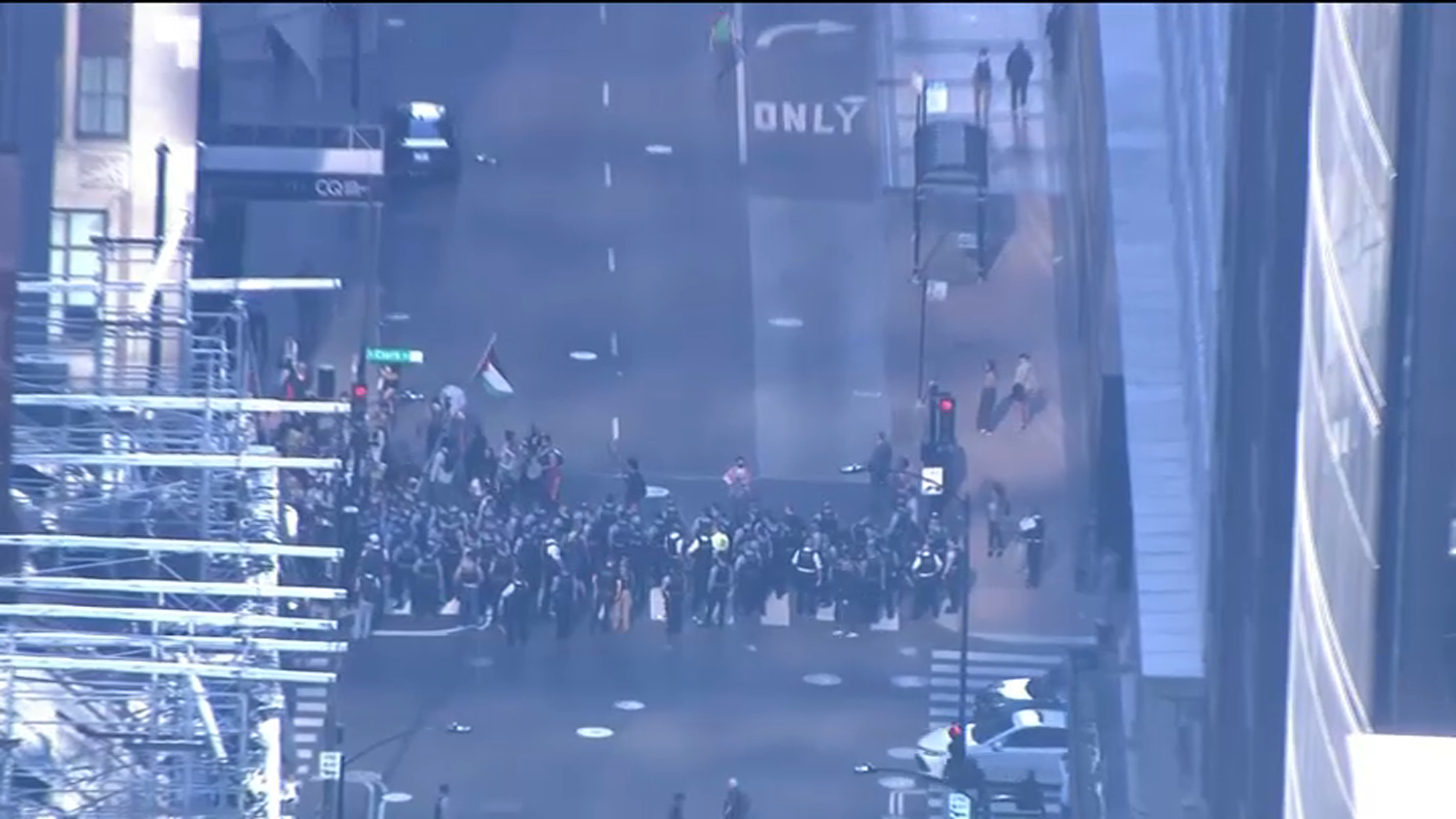COVID-19 shots for U.S. infants, toddlers and preschoolers are set to begin this week, but what should parents know as the country prepares for another vaccine rollout?
Here's what you need to know about the coronavirus pandemic across Illinois today:
COVID Vaccines for Kids Under 5: Where You Can Get Them, Side Effects, Dosage and More
COVID-19 shots for U.S. infants, toddlers and preschoolers are set to begin this week, but when and where can you get them and what do parents need to know?
Feeling out of the loop? We'll catch you up on the Chicago news you need to know. Sign up for the weekly Chicago Catch-Up newsletter here.
Parents have been pressing federal officials for months for the opportunity to protect their smallest children as more adults shed masks and abandon other public health precautions.
Coronavirus FAQ: How Soon COVID Symptoms Can Start, What to Do If You Keep Testing Positive
Local
Even though the COVID-19 pandemic has been going on for more than two years, there are still plenty of questions that individuals may have if they end up testing positive for the virus.
Upon that positive test, patients may be curious about how long they’ll be contagious, how to isolate and for how long, and what to do if they continue to test positive for the virus even after their symptoms have cleared.
Here are the answers to some of the most frequently asked questions about the virus.
US Opens COVID Vaccine to Little Kids, Shots Begin This Week
The U.S. on Saturday opened COVID-19 vaccines to infants, toddlers and preschoolers.
The shots will become available this week, expanding the nation’s vaccination campaign to children as young as 6 months.
Advisers to the Centers for Disease Control and Prevention recommended the vaccines for the littlest children, and the final signoff came hours later from Dr. Rochelle Walensky, the agency's director.
The government has already been gearing up for the vaccine expansion, with millions of doses ordered for distribution to doctors, hospitals and community health clinics around the country.
Read more here.
Here's Who Is Eligible For COVID Vaccines After Latest CDC Recommendations
Infants, toddler and preschools from 6 months old to age 5 are newly eligible to receive the COVID-19 vaccine following a recommendation from the Centers for Disease Control and Prevention Saturday.
The CDC decided that coronavirus vaccines should be opened to nearly all children, with CDC Director Dr. Rochelle Walensky giving the final signoff Saturday afternoon.
As new groups become eligible for COVID vaccines, some people are asking the latest vaccination recommendations from the CDC for all Americans.
Here's guidance from federal health officials.
What Are COVID Vaccine Side Effects For Kids Under 5?
With coronavirus vaccines now available for kids infants, toddlers and preschoolers, some are asking what side effects could accompany the shot?
The Centers for Disease Control and Prevention decided that coronavirus vaccines should be opened to children as young as 6 months, with CDC Director Dr. Rochelle Walensky giving the final signoff Saturday afternoon.
So far, studies from Moderna and Pfizer showed that side effects, including fever and fatigue, were mostly minor.
Read more here.
Coronavirus in Illinois: 27K New Cases, 68 Deaths in Last Week With 25 Counties at High Level
Illinois health officials reported 27,112 new coronavirus cases over the past week, along with 68 additional deaths, marking slight declines in cases from seven days prior as 25 counties across the state remain at a "high" community level of COVID-19.
The previous week, the state reported 34,001 new cases and 73 deaths. The week before that, the state reported 32,605 new cases and 47 deaths were reported.
See the latest metrics here.
Chicago Eases to ‘Medium' Community Level for COVID, With Nearby Counties Following Suit
As coronavirus cases and hospitalizations start to drop across the area, Chicago has moved from high to medium community level for COVID, according to the latest data from the Centers for Disease Control and Prevention.
As of Thursday, Cook County was recording 221 new COVID cases, about 10 hospitalizations and 3.5% of hospital beds occupied by coronavirus patients.
Despite the decline in metrics, health officials are still recommending masks indoors and for "medically vulnerable" people to take extra precautions in protecting themselves from infection.
Read more here.
How Long Are You Contagious With COVID? Here's What the CDC Says
If you test positive for coronavirus, you may have several questions, including how long you are contagious, how long should you quarantine for and more.
With COVID cases rising in the Chicago area and parts of the U.S., local health officials have issued warnings to take precautions, particularly in areas where transmission risk is increasing.
Here's a look at updated guidance from the CDC, including when to quarantine or isolate and information about the incubation period.
How Accurate Are At-Home COVID Tests? Here's What We Know So Far
With summer gatherings and events ramping up as temperatures warm, many people are testing themselves for COVID-19 to ensure they aren't spreading the virus, but how accurate are the tests?
According to the Centers for Disease Control and Prevention, "positive results from self-tests are highly reliable."
Negative results, however, may not rule out infection, particularly in those with COVID-19 symptoms, the CDC states.
Details here.
Testing Negative for COVID, But Have Symptoms? Here's What You Should Know
If you're experiencing COVID symptoms and were exposed, but continue testing negative for the virus, what does that mean?
There have been some anecdotal reports of people contracting the virus but not testing positive for a number of days, even while symptomatic. Others, don't test positive at all. So how can you tell?
Read more here.
How Soon Could You Get COVID Again After Initial Infection?
After being infected with COVID-19, how long are you protected with antibodies and when could you get the virus again?
Though questions have been asked over the past two years, the answers have changed as new variants are discovered.
The omicron variant, for example, led to a major shift in "natural immunity," with many who had previously been infected susceptible to reinfection with the new version of the virus.
COVID Symptoms Timeline: Signs to Expect With the Virus and When
For those who test positive for COVID-19 and experience symptoms, what signs should you watch for and how long could they last?
According to the Centers for Disease Control and Prevention, COVID symptoms can appear anywhere from two to 14 days after someone is exposed to the virus. You can end isolation after five full days if you are fever-free for 24 hours without the use of fever-reducing medication and your other symptoms have improved.
Read more here.
New Omicron Subvariants: What We Know About BA.4 and BA.5
Two new omicron subvariants known as BA.4 and BA.5 are gaining traction in the U.S., but how transmissible are they and what do we know about them?
Here's a breakdown of the newest mutations and what they could signal in the pandemic.
How to Calculate Your COVID Isolation or Quarantine Time, According to the CDC
With several Chicago-area counties under a "high" community level for COVID and more residents testing positive for the virus or being exposed to someone who has, many are wondering how long they should quarantine or isolate.
First, you'll need to know the difference between whether you must quarantine or isolate. Those who believe they have been in contact with someone who has COVID and are unvaccinated should quarantine. Those who test positive, regardless of vaccination status, must isolate, according to the CDC.
For those who are vaccinated, however, the guidelines are slightly different.
Read more here and check out the calculator tool.
COVID Booster Shot Eligibility: Who is Eligible Now for 1st and 2nd Boosters?
As COVID cases rise in Illinois and parts of the U.S. heading into summer, many are wondering which vaccinations they are eligible to receive and when.
Currently, not everyone is eligible for a second COVID booster shot, but experts are urging anyone who has not yet received their first booster dose to get one.
"I really, really want to emphasize as we move into this higher risk state that we need Chicagoans to come up-to-date with boosters," Chicago Department of Public Health Commissioner Dr. Allison Arwady said late last month as the city first entered the "high community level."
So who is eligible for which shots and what do we know about what's ahead?



